A Power of Attorney in Ohio is a legal document that empowers an agent to act on behalf of the principal who grants them the power.
The principal gives the agent the authority to make decisions related to their healthcare directives, financial or property transactions, and other issues related to their well-being.
It can be limited in scope, or it may grant an agent broad or general powers. It may also have pre-determined start and end dates. For example, it may ‘spring” after a specific event and end once the purpose is fulfilled, or it can have immediate, perpetual, or “for as long as needed” authority. However, it is essential to note that a POA in Ohio terminates by default upon the principal’s death or if the appointed agent dies.
A principal holder in Ohio can also revoke their agreement at any time, provided they are of sound mind, they rescind the agreement in writing, and they notify all the concerned parties, including their agent and any third parties that may have been informed of a power of attorney.
Free Forms
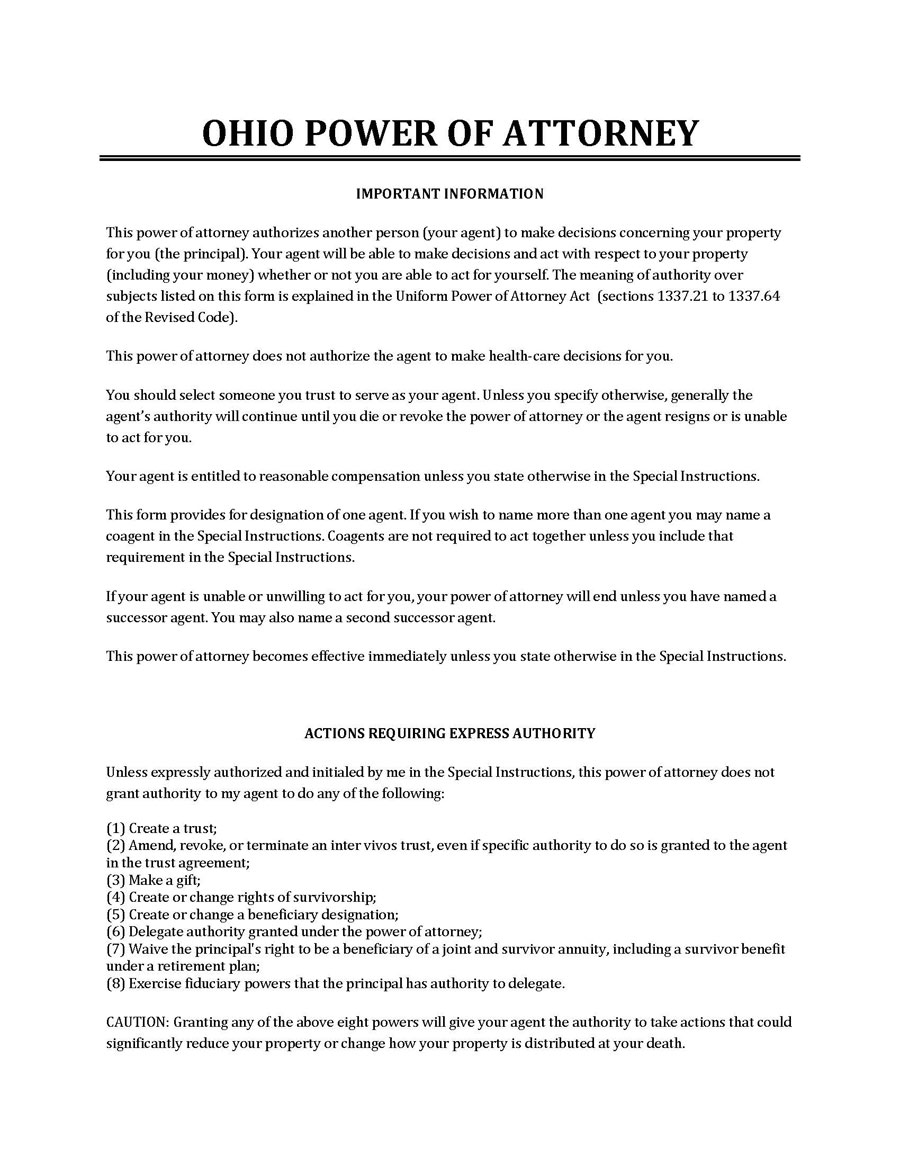
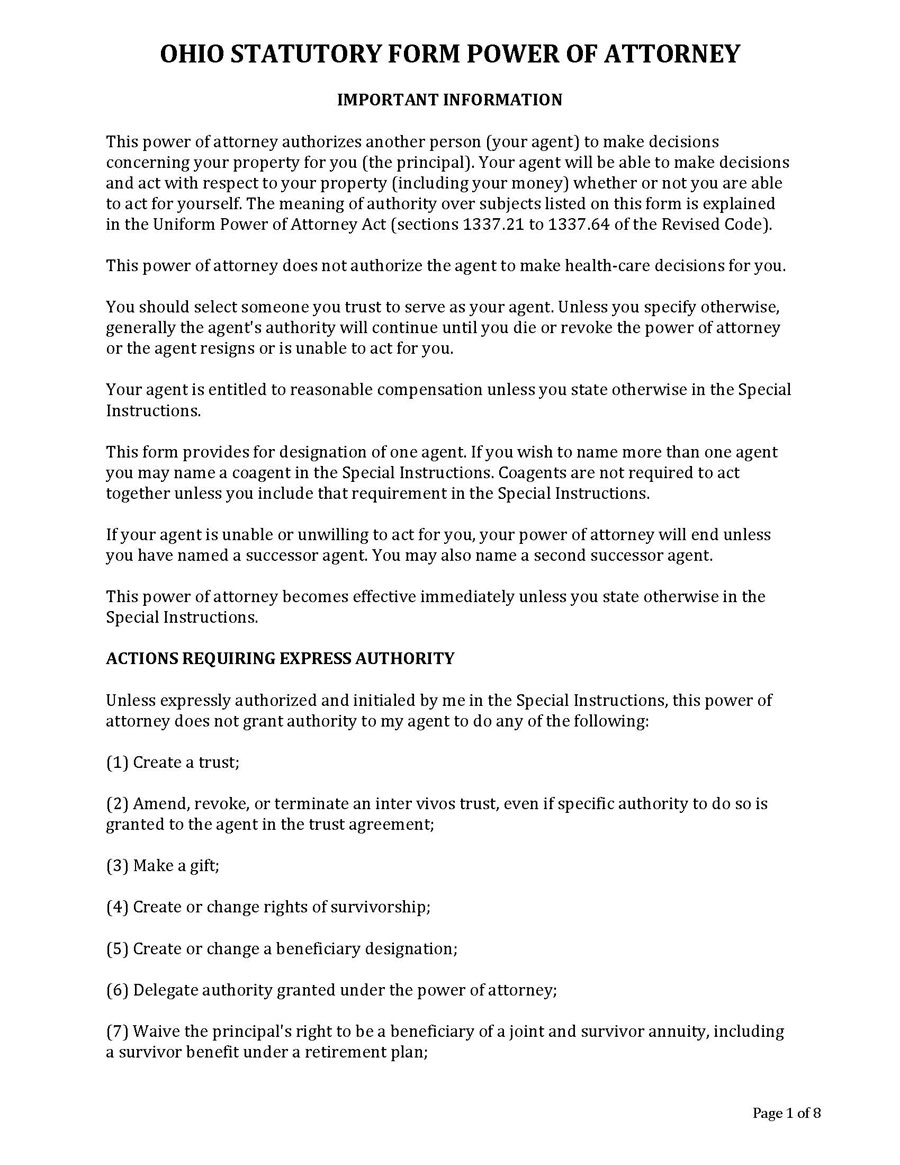
Types of Power of Attorney in Ohio
In Ohio, there are different types of POA depending on its scope and the specific purpose. Discussed below are the various kinds:
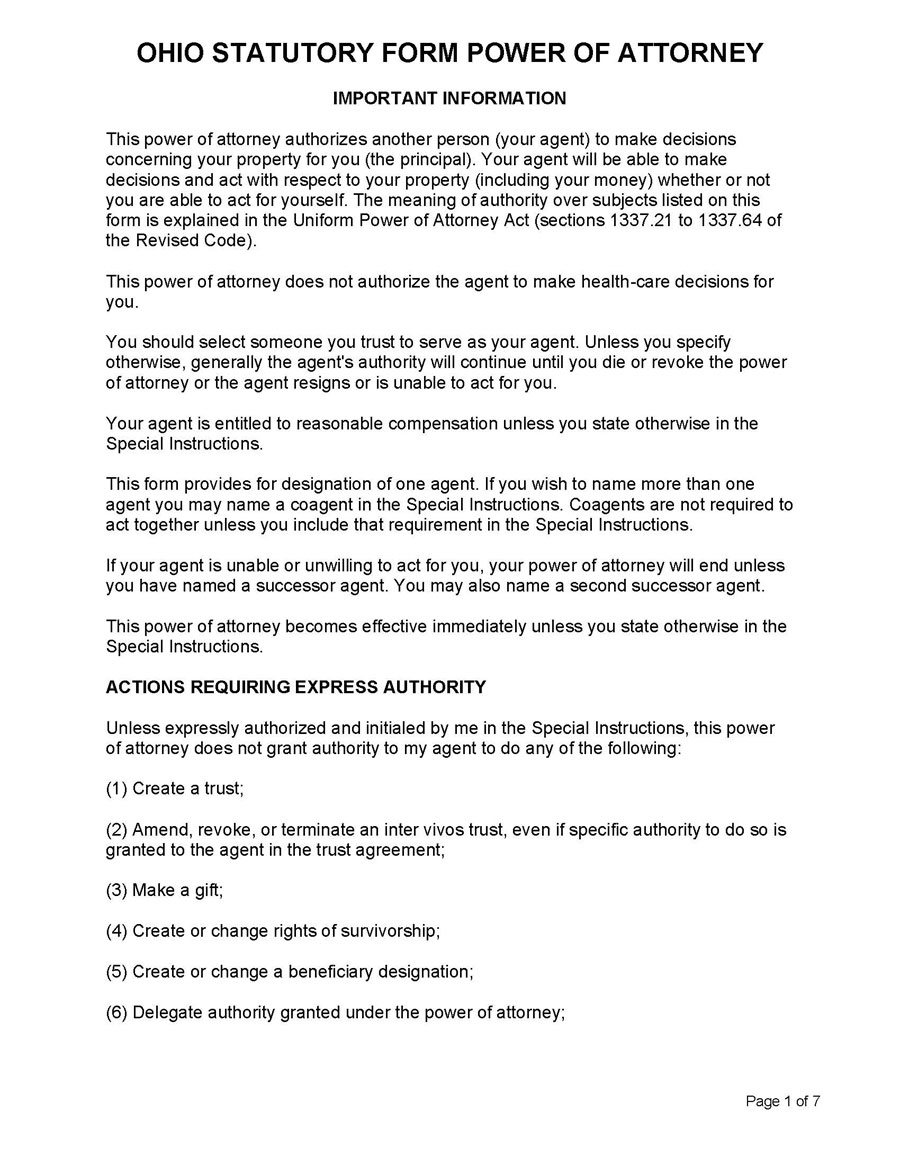
Durable (Statutory) Power of Attorney Form
Download: Microsoft Word (.docx)
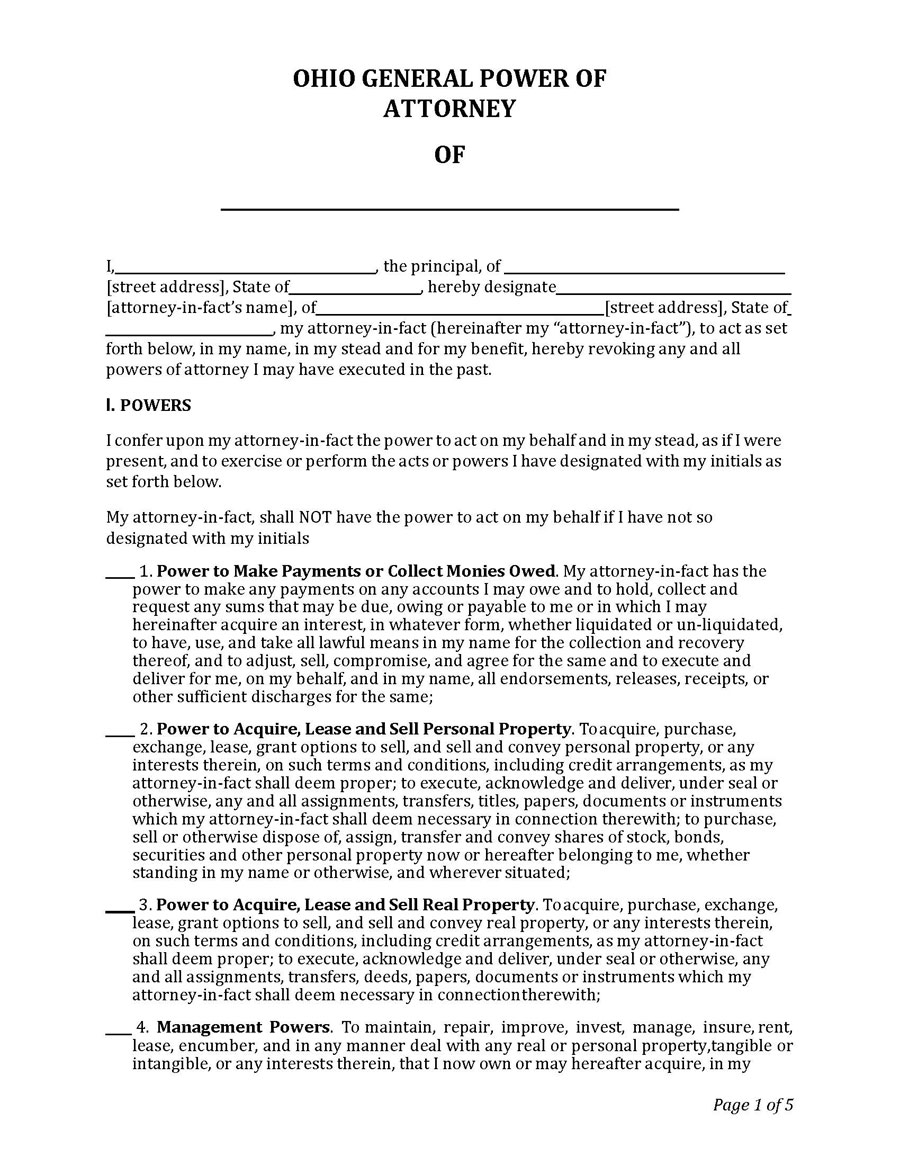
General (Financial) Power of Attorney Form
Download: Microsoft Word (.docx)
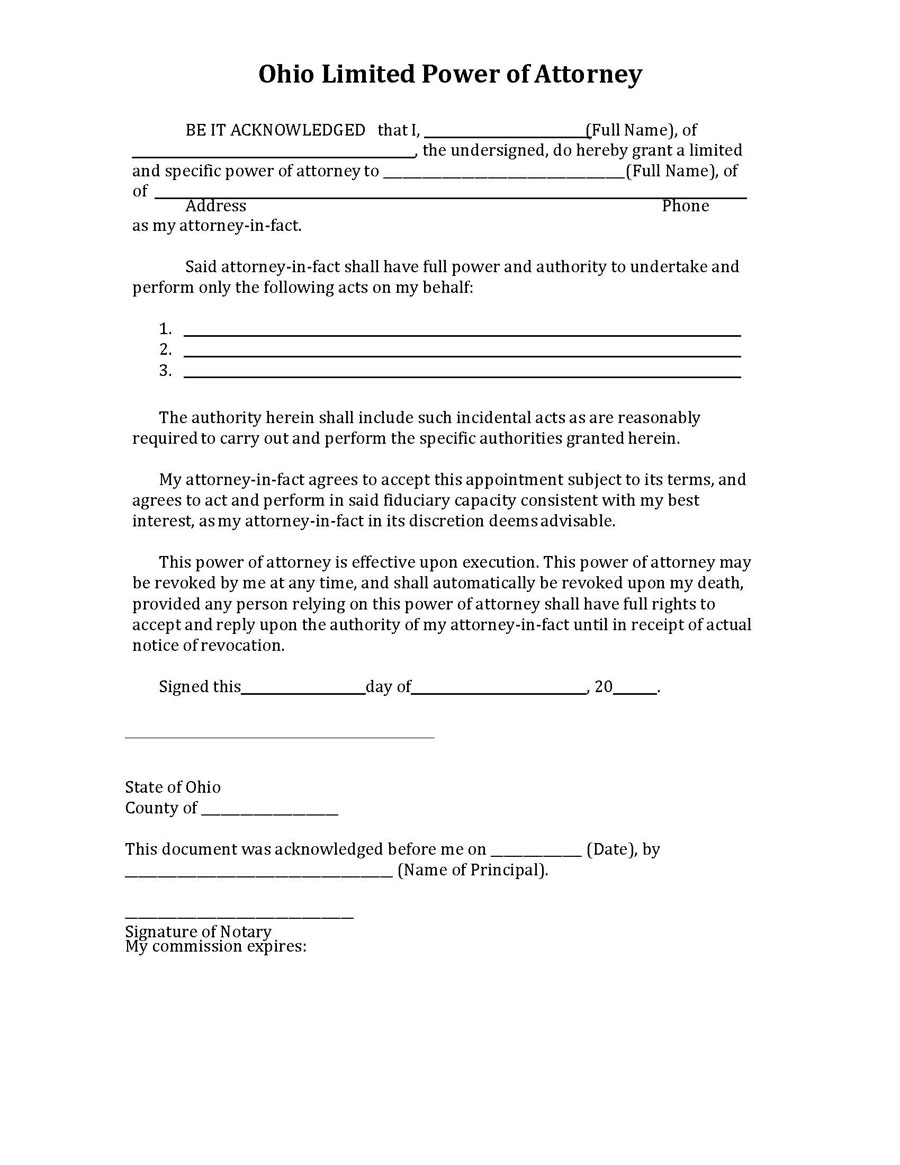
Limited Power of Attorney Form
Download: Microsoft Word (.docx)
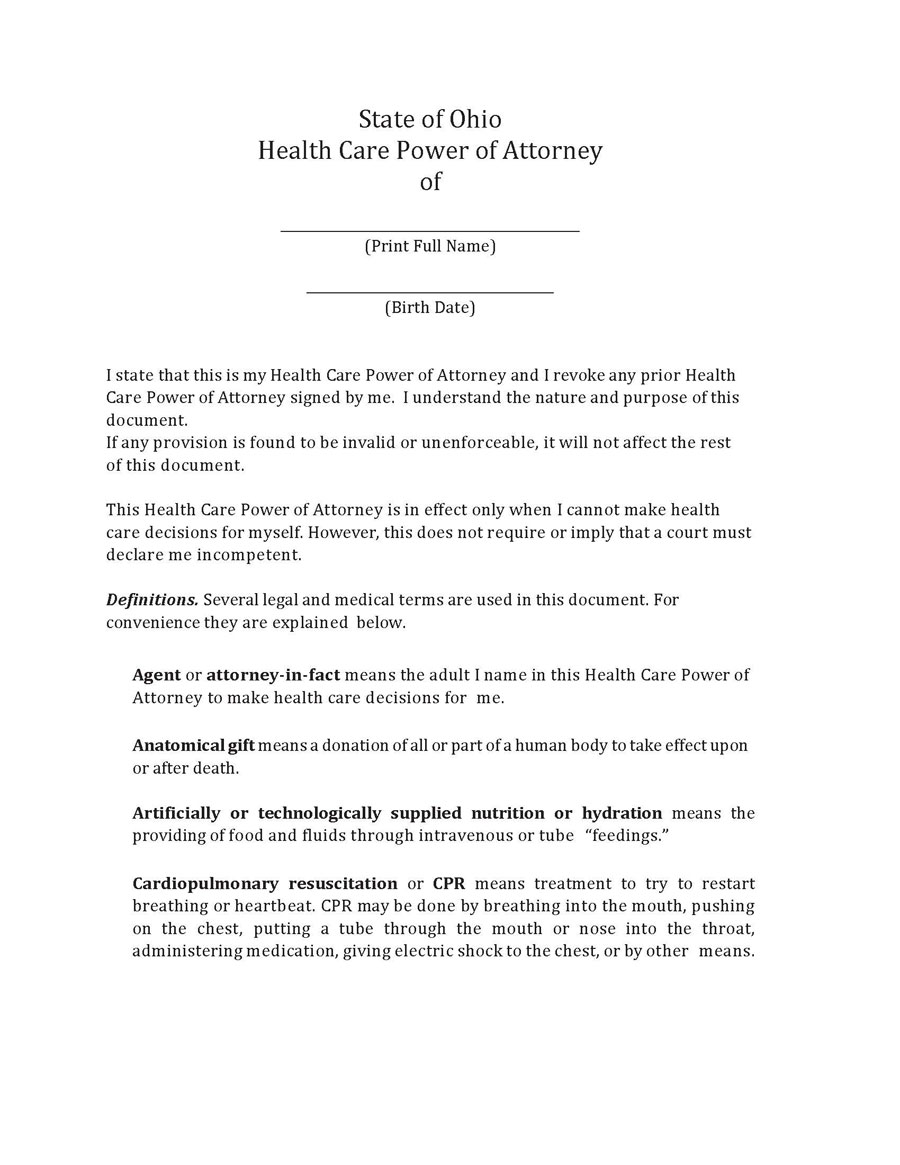
Medical Power of Attorney Form
Download: Microsoft Word (.docx)
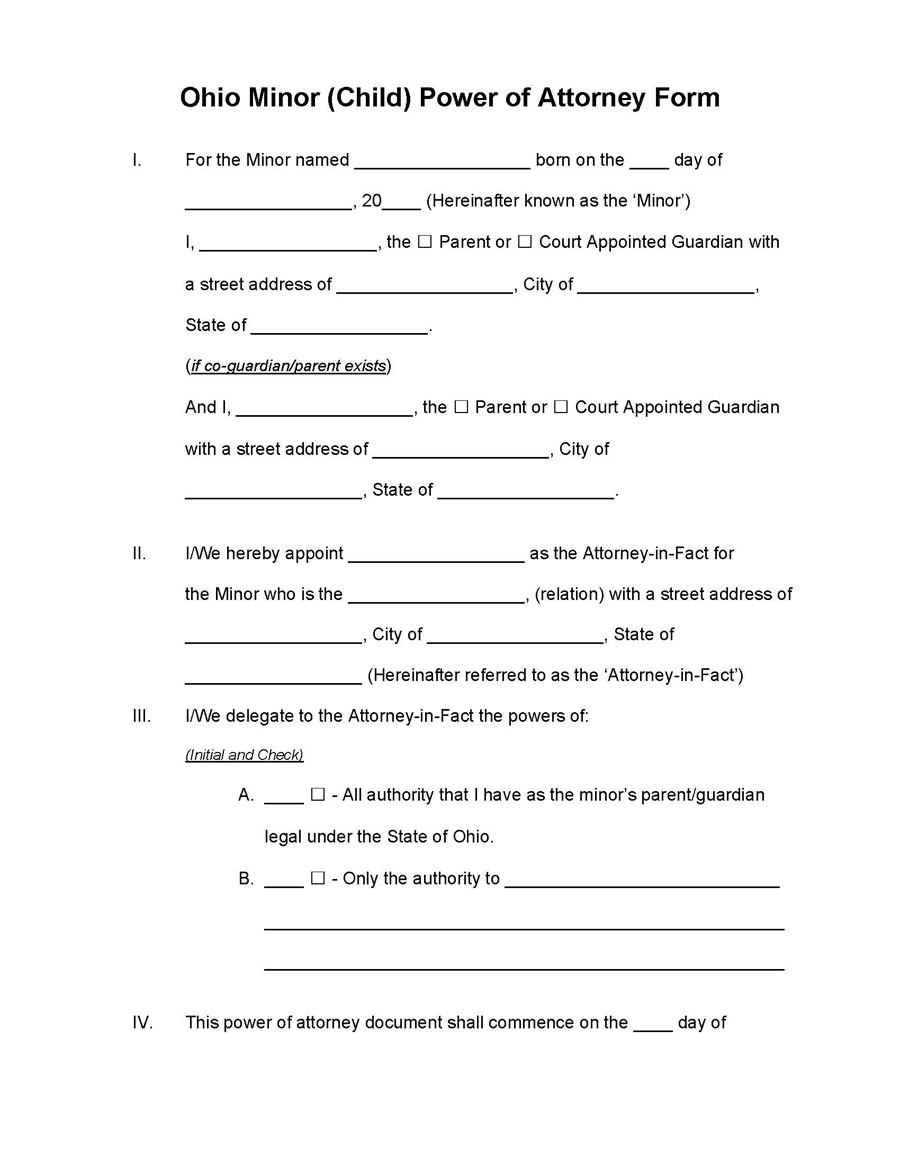
Minor (Child) Power of Attorney Form
Download: Microsoft Word (.docx)
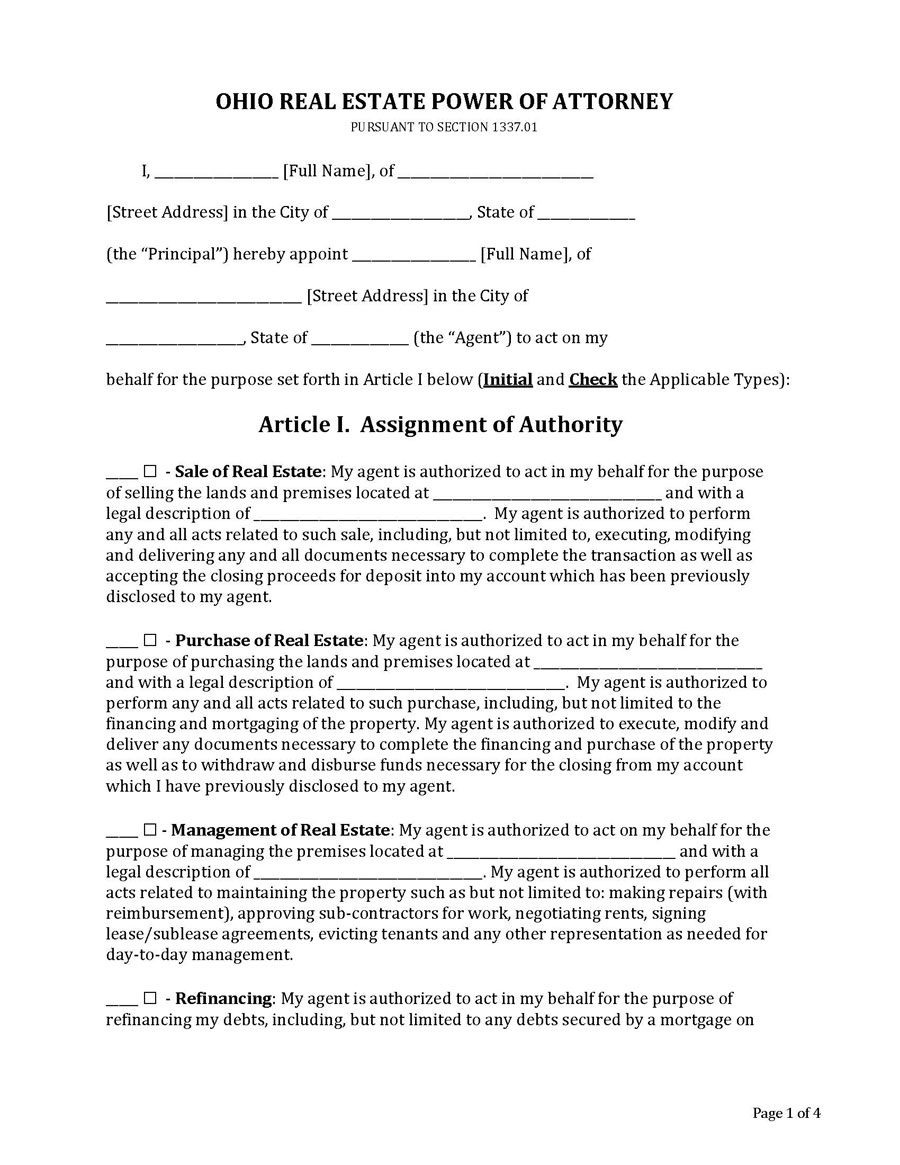
Real Estate Power of Attorney Form
Download: Microsoft Word (.docx)
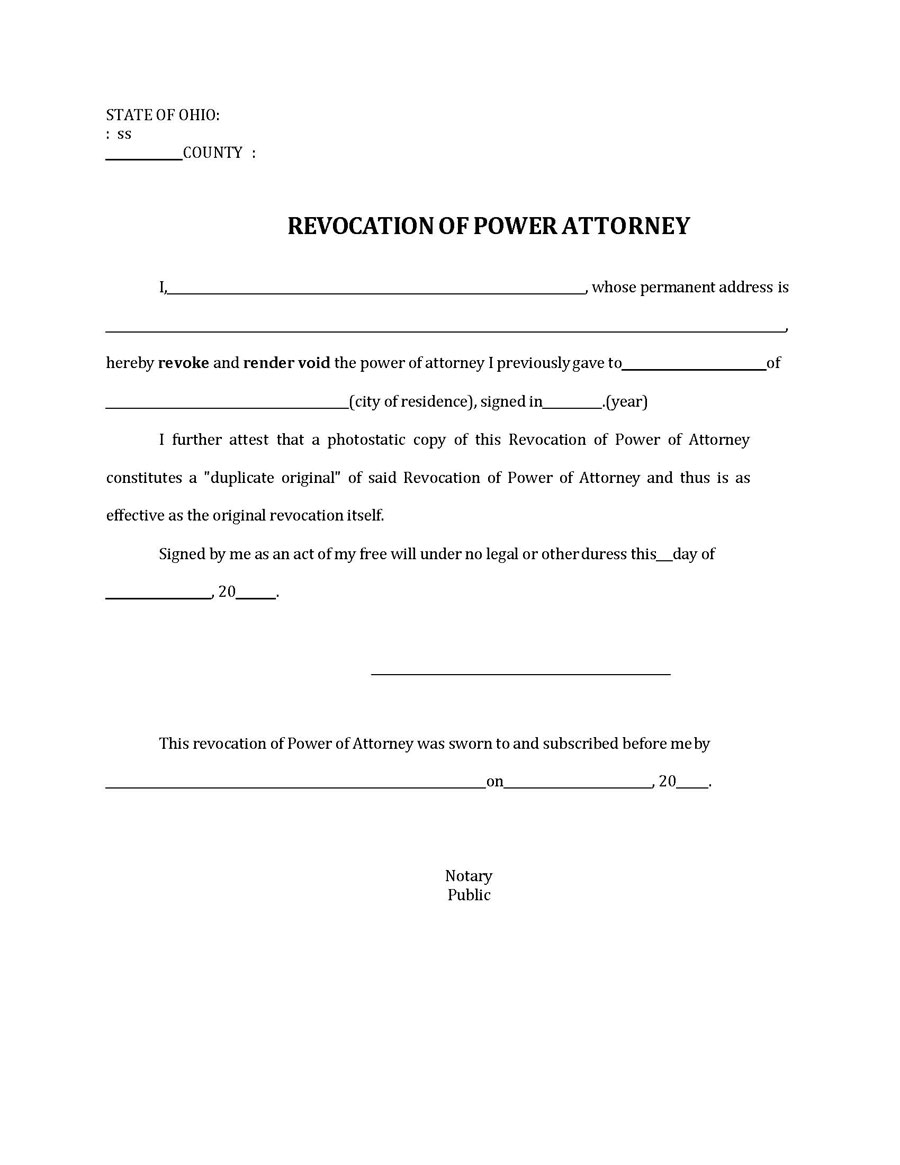
Revocation of Power of Attorney Form
Download: Microsoft Word (.docx)
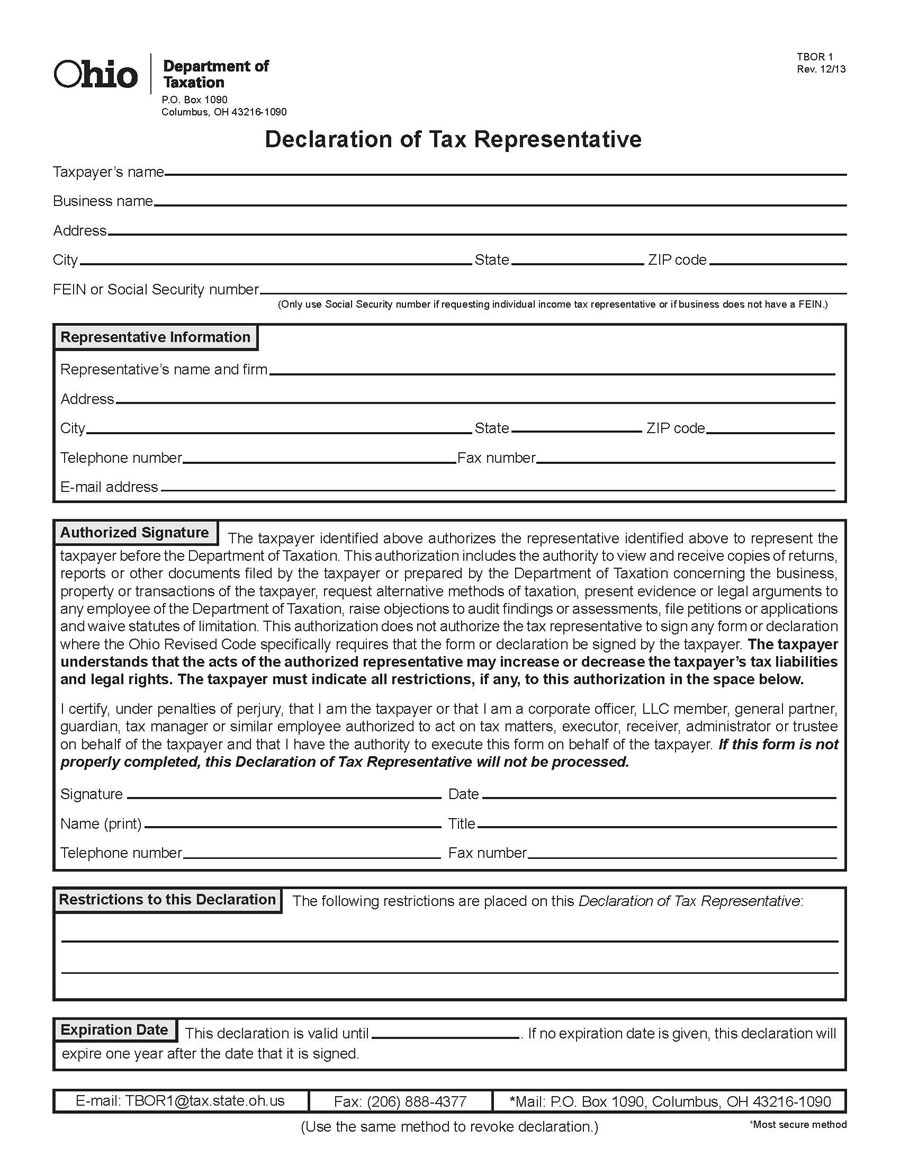
Tax Power of Attorney Form
Download: Microsoft Word (.docx)
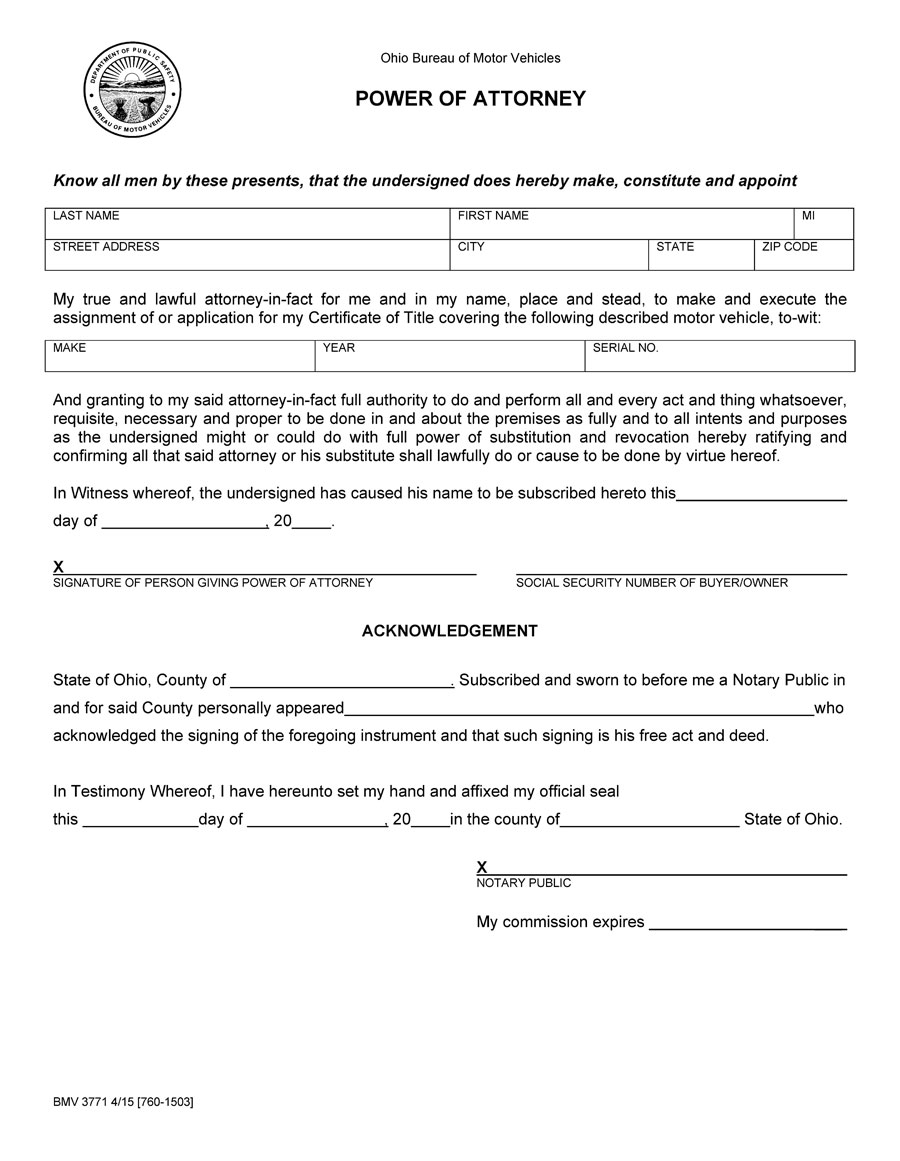
Vehicle Power of Attorney Form
Download: Microsoft Word (.docx)
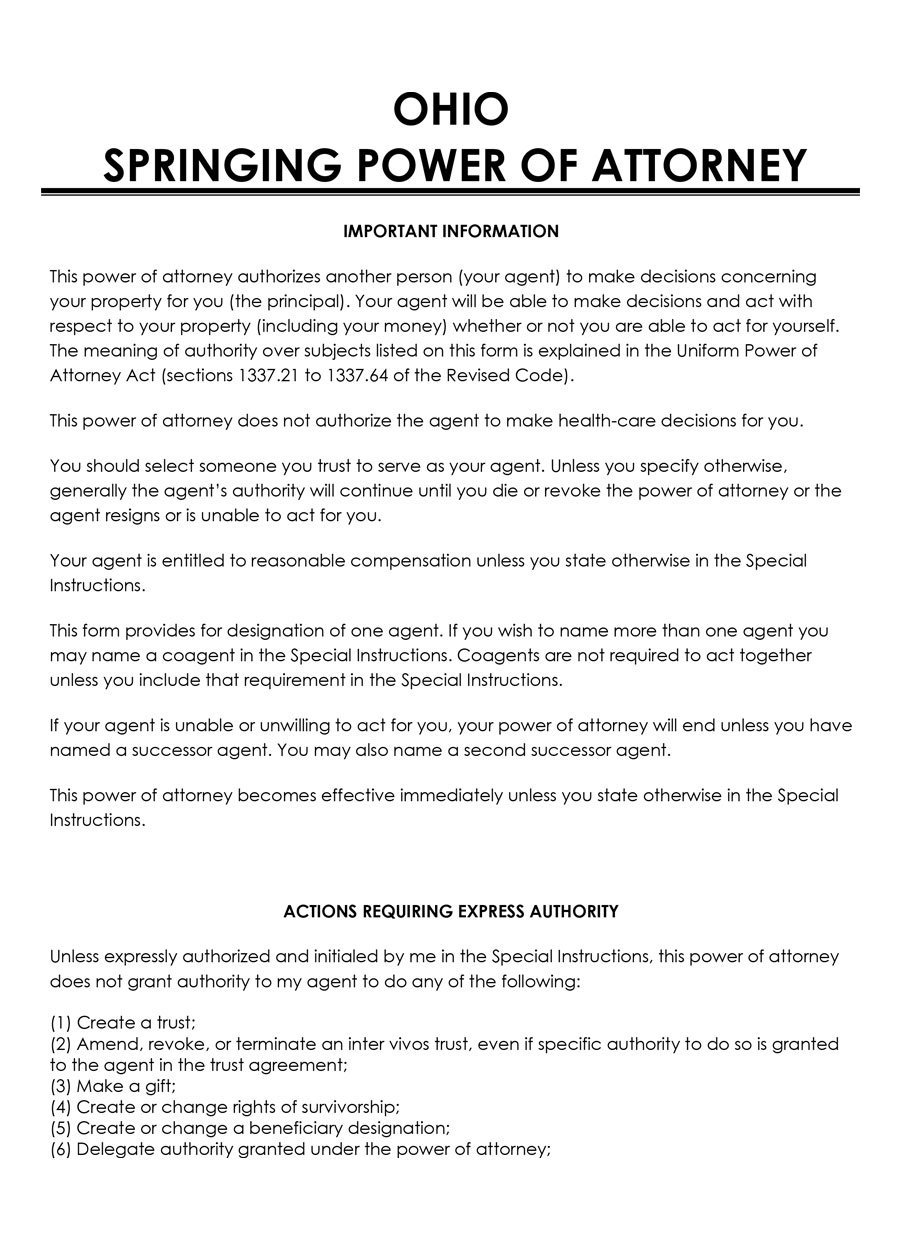
Springing Power of Attorney Form
Download: Microsoft Word (.docx)
Governing Laws
Ohio has various specific laws that must be considered when creating it within the state. First, the principal must sign it in the presence of a notary citizen, who must also sign the form in order to be valid. Additionally, Ohio state law § 1337.25, § 1337.61 provides that if the Agent Certification form is completed, the agent must also authorize their signature before a notary citizen.
The Ohio state law §1337.04 also stipulates that extra steps must be taken if a principal wishes to create a real estate POA form. This includes recording the document at a local county recorder’s office before an agent can wield the outlined powers and responsibilities. A statutory form of the POA is available at § 1337.60.
Ohio POA Requirements
For a POA to be considered valid in the state of Ohio, it should meet the following legal requirements:
- §1337.04 of Ohio state statutes, if it involves a real estate transaction, it must be recorded with the appropriate county recorder’s office
How to Get a Power of Attorney in Ohio?
You can get it by following these simple steps:
Decide the power of attorney to make
The first step of getting it in Ohio involves deciding which type to make. This depends on the principal’s specific needs and purpose for which they need it.
Select a preferred agent
Step two of obtaining this form involves selecting a trusted person to act as an agent. Again, it is normally a great idea to speak to the selected agent beforehand to ensure they are willing and available to serve in the position they have been nominated for.
Define the powers
Thirdly, the principal should decide which powers to grant their agent. These could be general powers or limited in scope, depending on the principal’s unique needs and purpose for creating the POA.
Get a power of attorney form
After deciding which type of form to create, selecting a trusted agent, and defining the POA’s powers, the principal should proceed to create the document. They can download an online state-specific POA form available in reputable online sources, or they may hire the services of a competent estate planning attorney who will prepare the POA on their behalf.
Sign and notarize it
The next step involves completing the form according to the instructions provided, signing it as per the power of attorney signing requirements, and having it notarized by a notary public or another individual authorized by law to take acknowledgments. Depending on the specific type of Ohio POA that the principal creates, they may need to sign it in the presence of at least two disinterested witnesses.
Issue copies of the completed document
Once the principal’s POA is signed and notarized, it is already executed per state requirements. To be valid, all the relevant parties, including the agent and any other third parties using the POA form, must be issued with a copy of the document.
Record the document
If a POA involves real estate transactions, a principal holder based in Ohio must record it at the relevant county recorder’s office. However, this step is optional for other POAs in Ohio.
Conclusion
It is a legal tool that allows the principal holder to designate some decision-making powers to a selected agent or attorney-in-fact. Most commonly, it is used by the principal who has assets or holdings they would like to be controlled by a trusted attorney-in-fact while they are away or in a situation where they can no longer make decisions for themselves.
According to Ohio law, a POA may be declared invalid if it fails to meet the state’s statutory requirements or violates any relevant provisions found in the Ohio revised code. Therefore, it is vital for anyone who needs or wants it in Ohio to know and understand these requirements to execute their POA validly. This article has helped shed some light on powers of attorney in Ohio, including all types, how to execute each type and when to use, Ohio POA governing laws and requirements, and how to get an Ohio POA.












